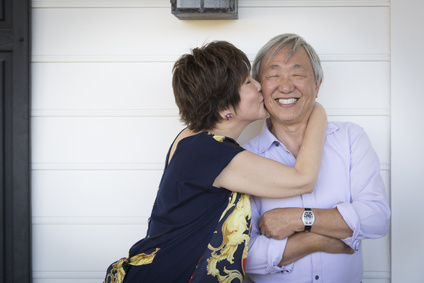Last weekend, my five-year-old twins were busy writing out Valentine’s Day cards for their classmates. As I watched them write, I smiled as I read the messages on the cards.
“You’re special to me.”
“Thanks for being my Valentine’s.”
“A sweet card for a sweet person.”
These messages reminded me of a deeper meaning behind Valentine’s Day: the value of friendship and connection.
Friendships and social support are part of the Relationship domain of your Promise Wheel.
Here are a couple of things to keep in mind as you navigate this part of your life.
1. Relationships are about connection
In the early stages of the pandemic, public health agencies asked that we practice social distancing to reduce the spread of the coronavirus.
Despite their best intentions, I’d squirm just a bit when I heard the words “social distancing.” I reacted this way because interpersonal and social functioning is often a measure of psychological health. And to practice your interpersonal and social skills, you need to socialize.
But you can’t socialize if you’re being socially distant.
When you are connecting with someone, it doesn’t matter how you interact with them. What matters is that there are attempts at connection — whether you’re communicating virtually or in-person; whether up close or while standing two metres apart.
Connecting with others in any way is essential for a balanced life.
2. Feelings are Just as Important as Actions
As I mentioned in the point above, it’s essential to connect with others in some capacity, whether it’s through telephone, video, email, or from two metres apart.
But regardless of how many people you are connecting with, it’s the feeling of connection — the emotion behind the action of communication — that helps build a balanced life.
Sometimes, we get caught up on how many friends or followers we have on social media. But those numbers do not represent whether or not someone feels connected.
When you are looking to build connections with others, don’t worry about the number of people you connect with. Instead, start by identifying one relationship that you’d like to improve, whether it’s with a friend, relative, spouse, child, or parent.
Then, focus on nurturing the emotion of connection within that relationship. In time, you will find it easier to build stronger connections with others.
Summary
Whether it’s through the process of unconditional positive regard, acceptance, forgiveness, warmth, or compassion, a solid friendship can do wonders to improve how we feel about ourselves, others, and our lives.
Remember that your friends love you whether or not you communicate via text, phone, Zoom, or email.
As my kids’ Valentine’s Day activities reminded me, it’s not the size of the card or the size of the message that matters. It’s the thought and gesture of making an effort to connect.
I hope this tip helps in your ability to feel build relationships with those you care about.
Richard

